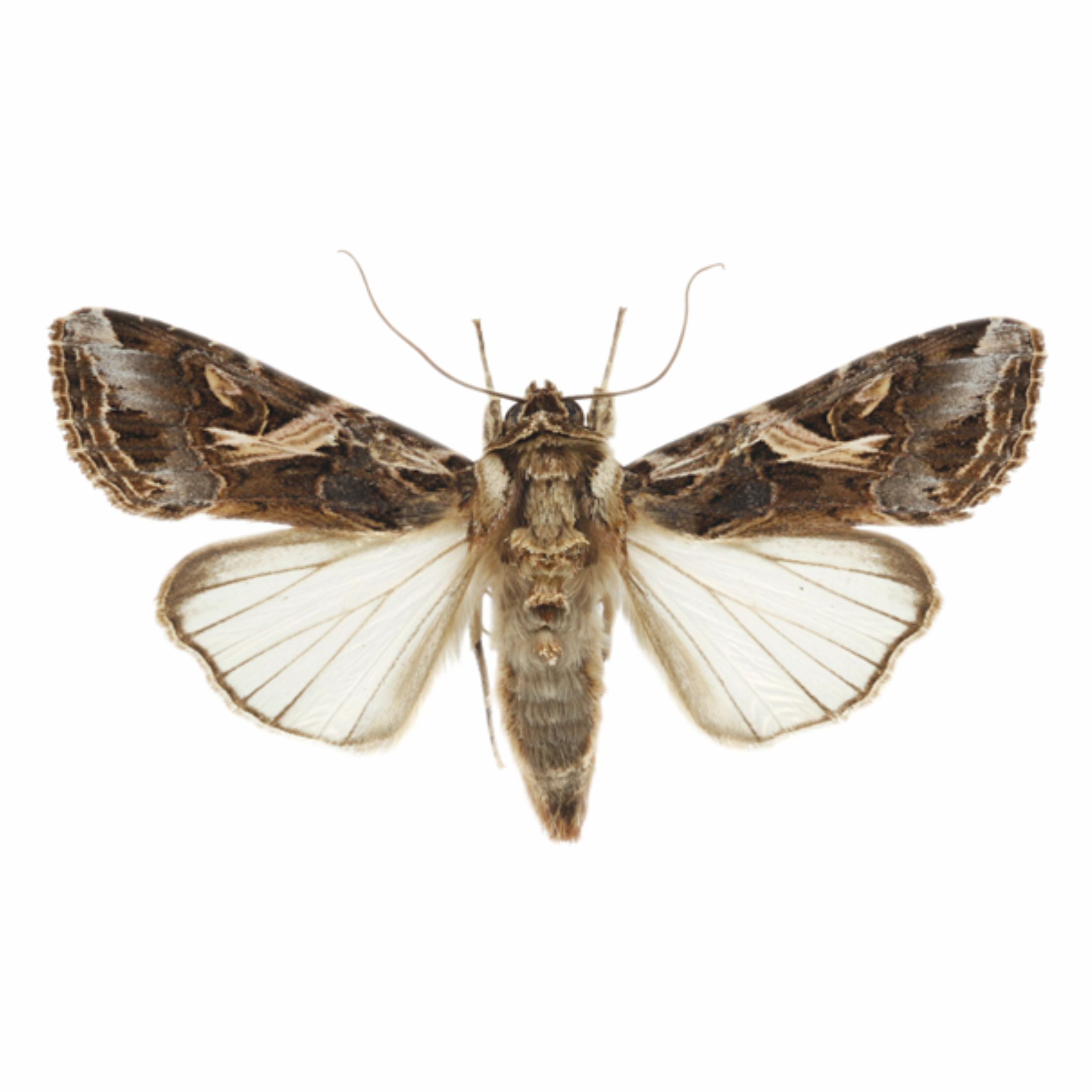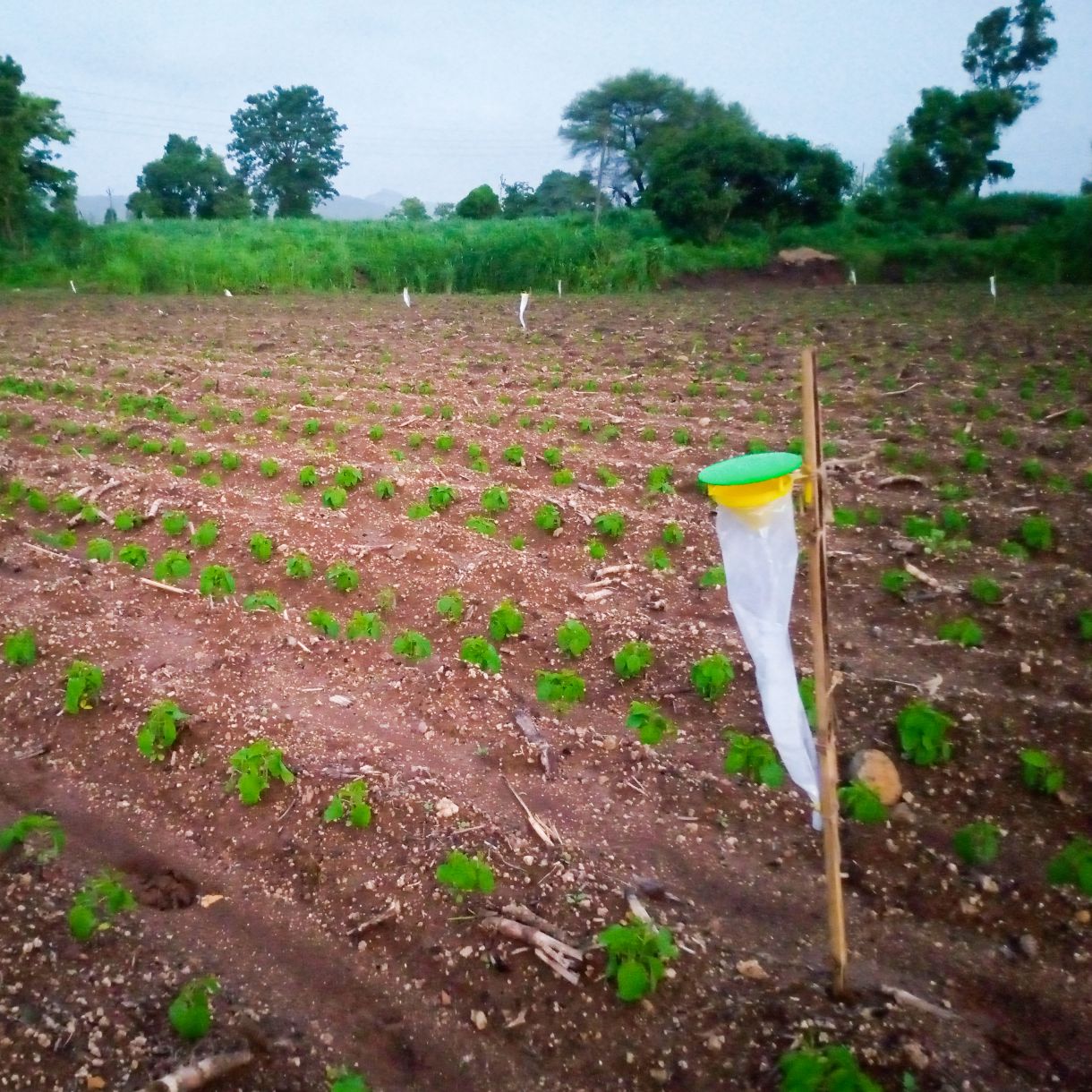.jpeg)
.jpeg)
Spod-O Lure
Spod-O Lure specifically attracts male moths of Tobacco Caterpillar. This lure recommended with funnel trap to use.
₹
Inclusive of all taxes.
Product Detail and Specifications
Spodoptera litura, otherwise known as the Tobacco Cutworm. S. litura is a serious polyphagous pest in Asia, Oceania, and the Indian subcontinent. Its common names reference two of the most frequent host plants of the moth. In total, 87 species of host plants that are infested by S. litura are of economic importance. The species parasitize the plants through the larvae vigorous eating patterns, oftentimes leaving the leaves completely destroyed. Their potential impact on the many different cultivated crops, and subsequently the local agricultural economy, has led to serious efforts to control the pests.
Attracting Insect Species
Tobacco Caterpillar (Spodoptera litura)
Suitable trap for Spod-O Lure
Funnel Trap
Used In Crops
Soybean, Tobacco, Cabbage, Chili, Maize, Corn, Cotton, Grapes, Tomato, Beans, Cauliflower, Red gram, Black gram, Green gram, Pea, Groundnut, Caster, Sunflower, Onion, Sorghum.
Pest Identification
Adult moth is stout with wavy white markings on the brown forewings and white hind wings with a brown patch along its margin. Eggs are laid in groups usually on ventral side of the tender leaves and covered with brown hair. The egg period is 4-5 days. Larva is stout, cylindrical, pale brownish with dark markings. The body may have row of dark spots or transverse and longitudinal grey and yellow bands. When fully grown, measures about 35-40 mm in length.
Damage
On most crops, damage arises from extensive feeding by larvae, leading to complete stripping of the plants. Freshly hatched caterpillars feed gregariously, scrapping the leaves from ventral surface. Greenish caterpillars feed on the leaves voraciously and present an appearance to the field as if grazed by cattle. Since this pest is nocturnal in habit it hides under the plants, cracks and crevices of soil and debris during the day time. Fecal pellets are seen on the leaves and on the ground which is the indicator of the pest incidence.
Adults fly lay eggs in masses of 200 to 300 that are approximately 4-7 mm and cream to golden brown in color. The egg usually laid on the underside of the host plant leaf. Eggs usually hatch between three to four days. Young larvae are translucent green with a dark thorax. As growth continues, larvae eat entire leaves, and even flowers and fruits. once larvae matured then The larvae burrow into the soil several centimeters (7 to 10 days). the pupa is 15 to 20 mm long and its color is red-brown. in the favorable conditions the adults are a comeback from the pupa stage. The average life cycle will be completed in about 25 days.
Life Cycle
Adults fly lay eggs in masses of 200 to 300 that are approximately 4-7 mm and cream to golden brown in color. The egg usually laid on the underside of the host plant leaf. Eggs usually hatch between three to four days. Young larvae are translucent green with a dark thorax. As growth continues, larvae eat entire leaves, and even flowers and fruits. once larvae matured then The larvae burrow into the soil several centimeters (7 to 10 days). the pupa is 15 to 20 mm long and its color is red-brown. in the favorable conditions the adults are a comeback from the pupa stage. The average life cycle will be completed in about 25 days.
Technology
Insect Sex Pheromone Technology. It is the process of attraction and trapping the insect pest of specific Species those damage to crops.
Per Acre Use
Funnel trap with Spod-o lure at 10/acre for better management.
Benefits
Economically Affordable, easy to install and manage.
If used properly can detect low numbers of insects.
Collect only Species Specific Non toxic.
Suitable for all season.
Pheromone Lures are species specific.
Reduce the use of harmful pesticide, encourages doing organic farming.
Features
Pheromone used 99% pure.
99.9% Effective from other commercial product.
Lure working day in field life 30- 45days, Depend on weather conditions.
Packing signal unit in anti smell realizing pouch.
Dispenser - Septa
Lure can stay for one year without removing from packing.
Precaution
Please use hand gloves /Keep clean hand for handling lure.
Hang trap 1 to1.5 feet above crop canopy.
Avoid direct contact of lure with other chemical.


